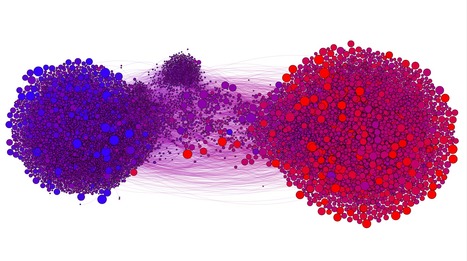We analyze the relationship between partisanship, echo chambers, and vulnerability to online misinformation by studying news sharing behavior on Twitter. While our results confirm prior findings that online misinformation sharing is strongly correlated with right-leaning partisanship, we also uncover a similar, though weaker, trend among left-leaning users. Because of the correlation between a user’s partisanship and their position within a partisan echo chamber, these types of influence are confounded. To disentangle their effects, we performed a regression analysis and found that vulnerability to misinformation is most strongly influenced by partisanship for both left- and right-leaning users.
Read the full article at: misinforeview.hks.harvard.edu
Via Complexity Digest



 Your new post is loading...
Your new post is loading...











